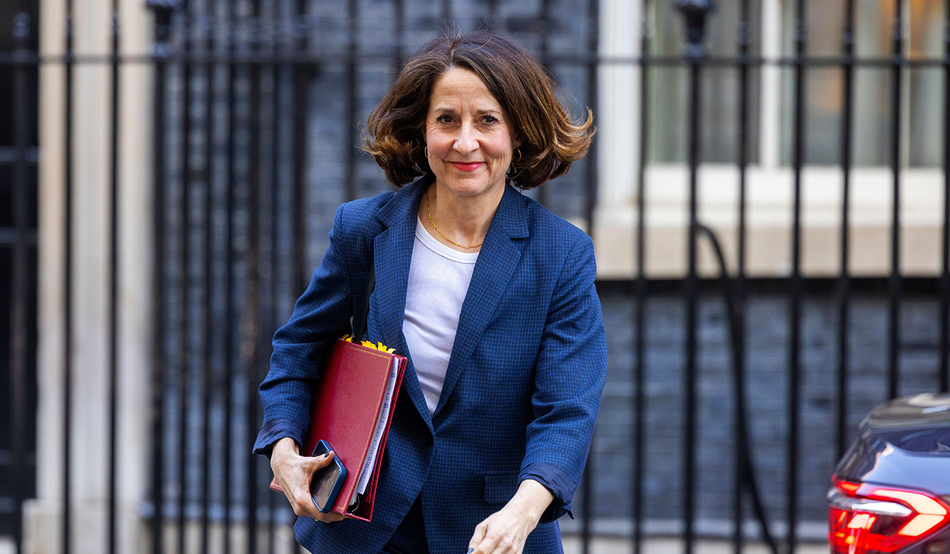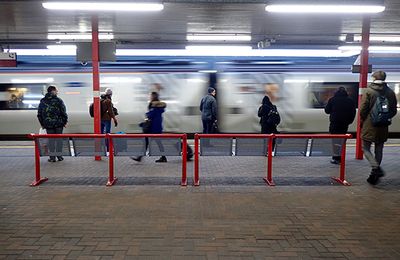Raymond Martin can’t stop talking about toilets. As we discuss ways a toilet could make a profit, the director of the British Toilet Association (BTA) is prone to flights of fancy. “What about a taxi stand with a toilet on the back of it?”
I have met Martin on a Monday morning at one of the UK’s award-winning public toilets, by the Embankment, in London. They were recently refitted and have an Egyptian theme with pale blue tiles and gold inlay.
Martin is more comfortable hanging around outside a loo than I am. From Bangor in Northern Ireland, he is a positive and loquacious man, who has spent the last 20 years of his life campaigning to improve standards in all public toilet facilities across the UK.
Martin first became aware of the need for better public toilets after his wife died in childbirth. That left him to raise two little girls on his own. One problem presented itself repeatedly: as a male, he often couldn’t find facilities to take his children into. It marked trips to seasides, rural areas or just the centre of town with peril. Later on, caring for elderly and impaired relatives, he came across the same issue. “It’s a basic human right,” he tells me. “People with disabilities are suffering,” says Martin. “So are delivery drivers, parkrunners, children. We fight for all these people who’ve had no voice.”
He joined the BTA two decades ago. In 2005, he helped host the World Toilet Summit in Belfast: 560 people came—mayors from Hong Kong and Taiwan, representatives from Germany and more. “But no British minister would attend.” Other countries have a department of hygiene or sewage that has toilets in its remit. Not us. Responsibility for toilets fall in the cracks between council, government and business.
What’s astonishing is he does this for free, and has done since 2011. The BTA funds its costs through conducting toilet surveys for its members. But since austerity, councils lack the funds to pay for such services. “I have a fantastic time,” he says. “I’m on the British Cleaning Committee and the Committee of the British Standards Institution. Doing this job, I’ve made friends for life.” He works 80 hours a week and largely lives on his pension.
His free time is spent on grandchildren duties and helping deliver newspapers to neighbours. “I want to make the world a better place for my children, my grandchildren, your children and your grandchildren. I’ve got an opportunity to do something.” He’s also currently trying to take down offensive posts on the BTA’s Instagram account, which he says was set up by a previous director and has since been “hacked and compromised”.
Over the last decade around half of all public toilets have shut down, Martin says. The Victorian Plumbing group estimates Newcastle will have lost all its public loos by 2028—and Birmingham could be a loo desert by 2048. Groups such as Age UK and the Royal Society for Public Health are natural allies of Martin and his friends. More recently, the Road Haulage Association (RHA) and the Trades Union Congress (TUC) have supported the BTA. The RHA has described the lack of toilets for delivery drivers as “dehumanising”.
Westminster politicians have often shied away from talking about defecating, he says. “No one wants to be minister for poo.” Yet better public toilets can get more people on the high street, socialising and spending. It prevents people from being stuck at home beholden to what campaigners call a “loo leash”.
Good news may be on the horizon. In January, the BTA met the government to discuss plans to make public lavatories a legal requirement in town centres. The BTA had first discussed this with the government in 2007. “But nothing was done from 2007 to 2023.” Then, a bill proposing a duty on every council in the country to provide a public toilet got to the Lords before “the Tories shut it down”.
But it has resurfaced. Last November, the BTA got a call from Alex Norris, minister for building safety, fire and local growth, offering support. At the thought of it, Martin looks flushed with pride.














